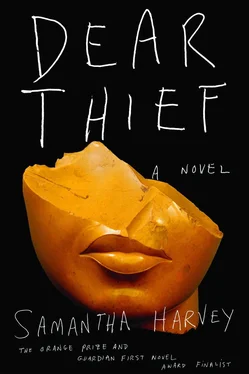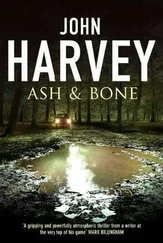You see, I over-emphasised there my forgery and invention, and under-emphasised the very thing that drove me to write the memory in the first place, which was a sense of sudden closeness or complicity. The truth is that trying to get to the emotional heart of things is so difficult, because emotions morph into one another with such confusing subtlety that what was elation is now fear is now rejection is now rage is now wonder, all depending on the agenda we come at them with. So how can we get to the heart of them when the only heart they really have is our own? And this heart is supremely inconsistent and liable to irrational turns.
For example, the pearl-fishing trip in the Oykel Valley. Sometimes the centre of this memory is the pearl itself, which represents happiness, a joint achievement, and a time in our lives when we were a family at one with itself. Sometimes the pearl slips to the background of this picture and what emerges as forefront is the moment I mentioned — not more than five seconds long — when I caught Nicolas staring at Teddy and me from the water. For a number of years this was all I could think of when I remembered that trip, because I couldn’t decide why he was staring or what his expression meant. It was a look of love, I knew that, but was that pain behind it, or fear, or intense happiness, or. . . ?
I began to be troubled by a lack of facts, namely whether this trip happened before or after you first appeared at our door in Morda. I know the pearl-fishing trip was in the April of 1982, and I know you arrived that April, either soon before or soon after, but nothing I did to force chronology onto these events made any difference. I would go over the scene in my mind, but the problem is that the mind is a bad loser and can never accept it doesn’t know best, so what it doesn’t know it invents. Hence it invents, at one moment, the spectacle of our camping equipment spread over the grass in our garden to dry out before we put it away: therefore, you arrived after the trip happened. Yes, you were sitting, not on my coat as I’d previously mentioned, but on the edge of the groundsheet. You wrapped the guy-rope round and round your thumb as you spoke, and never once asked about our camping trip or where we had been.
At the next moment, it invents the opposite scenario. It does so as soon as I question the veracity of the last, because I’m certain the garden wasn’t full of camping things, or at least if it was it means we had only just that day got back, since Nicolas was always prompt about packing away. So the mind rebounds. It says, Ah, no! We hadn’t just got back after all — we were about to go. The tent was in a heap in Teddy’s bedroom, where Nicolas had removed it from its bag to check it was all there. You were sitting on the floor in Teddy’s room reading stories with him, wrapping the guy-rope around your thumb while the two of you mouthed sounds with lips pouted.
The chronology mattered so much, or so it felt then anyway, because the interpretation of Nicolas’ expression that day as he waded in the river completely depended on it. Did he look at Teddy and me with such love because he had just, while fishing, had an image of you in his mind and was guilty and threatened by what he felt? Or was it because he hadn’t yet met you and was still happy in his marriage, at an optimum point of devotion before it ebbed away?
And then sometimes this image too fades to the background and the storm is all I can think of. More recently this is how I tend to remember it, with less and less personal emotion and more as an abstract awe stirred by those incredible tantrums of nature. And now I think: Did I share too much with her? Am I cutting her too much slack? Am I making her think I care more than I do? Because, as I said, I think about the pearl-fishing trip now with detachment, little more, and somehow I wish that when I wrote about it I hadn’t got so carried away with how it was, and had written more about how it is. Just a storm, is how it now is. I should have written a few rudimentary details about when and where, leaving out the digressions about Nicolas’ upbringing and his expression and the salmon fisherman and the hot-water bottles; just the storm and a tree on fire, and our plastic cups tossed into the air, and an eagle plummeting sideways to snatch the bacon rind from the water as our plates reeled downstream. And three bleary little glad faces hardly noticeable behind glass and a veil of rain.
The longer I go without word from Teddy the more I imagine him with you in or around your hut, out taking photos of the trees or swimming in the static lake against the hum of a generator. You sit outside at a fold-up metal table that squeaks at the joints, on a day that is two degrees short of warm, and gaze into the light. This was how you were with him, benign but largely indifferent. Even when he was clanging a wooden toy against the fridge or screaming at a minuscule injustice, you never minded his presence. But you made no effort to engage in his world, either. I thought of it like the relationship between a human and a dog; human throw stick, dog chase stick, human shall never chase stick. Different types of beings equally united and divided by stick. Teddy appreciated your lack of likeness to him, and rarely missed a chance in the evening to curl himself against you in your armchair. You neither cuddled him nor shrank from him; maybe you would rest an arm across his shoulders.
So you are at the fold-up table, trying to build a Japanese torii out of snapped twigs, and are contemplating how vertical everything is — the trunks of the spruce, the secondary and tertiary branches that shoot straight up in search of light, the light itself falling like a plumb line in faint beams that make you look up for a UFO. Ah, how you would love an alien in this moment. The pitter-patter of intelligent life across the forest floor; you would sit your alien down and ask it to be honest about what it thought of Earth. Honestly (and here comes your frank, unsparing look) — do you think this Earth is wondrous or absurd? You contemplate briefly the possibility that it doesn’t speak English or might be as dull-witted as a stone, but don’t like to bother your fantasy with these trifles.
Over there Teddy stalks through the trees photographing lichen and leaf veins and insect dances. Or he threads through the water, always a good swimmer. The problem with Teddy is that he bears a false love, and his loyalty is misplaced. He loves you because he thinks you were exiled unjustly, and he prides himself on being the one member of our family who fights this injustice. Edward the fair, Edward the peaceful, watching over you with unquestioning belief in your goodness. He would strip the pines bare one by one if you asked him, just because you asked him.
Evening comes. There is incense and frying kippers and God beating about in the reddening sky. The sky looks sore. You are wondering why God must be so forceful with everything. You are wondering about Teddy too, how a four-year-old boy grew into this dark, intense man walking the forest with a camera and how from such chubbiness came high cheekbones, carved nose and sharp eyes. If only he would go away and care about something else; it makes you feel guilty that he loves you still, and you hate to feel guilty, the most wasteful of emotions. His very presence is making you waste yourself. You take up a bit of tobacco from the table top and chew it — don’t you — with your shoulder turned against him.
(But why do you write to her like this? Yannis says. He is taking me around Borough Market, his favourite place in London. A place of modern worship, lofty and vaulted, more populated on a Saturday morning than the church is on Sunday, its roof more light-letting than the great Gothic windows of Southwark Cathedral.
Читать дальше












